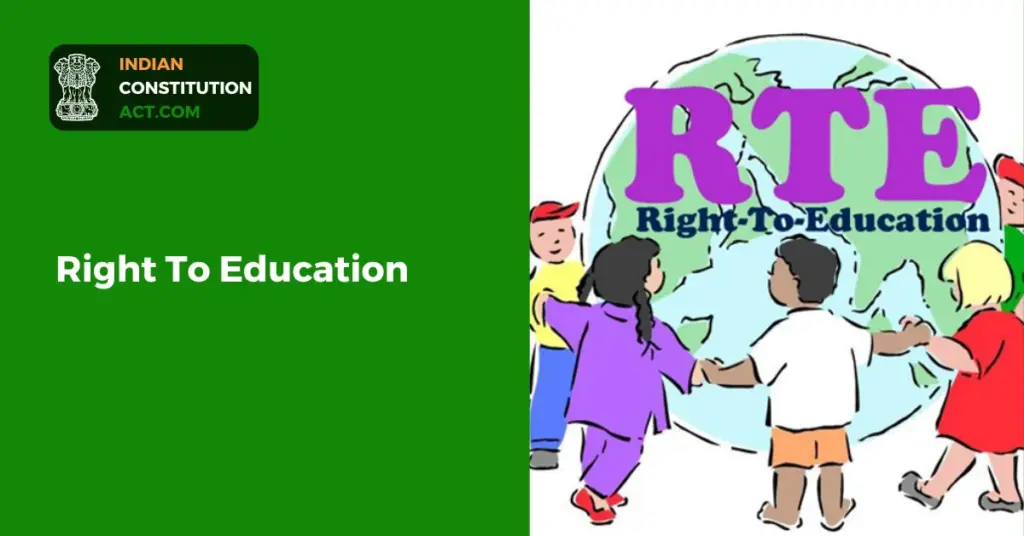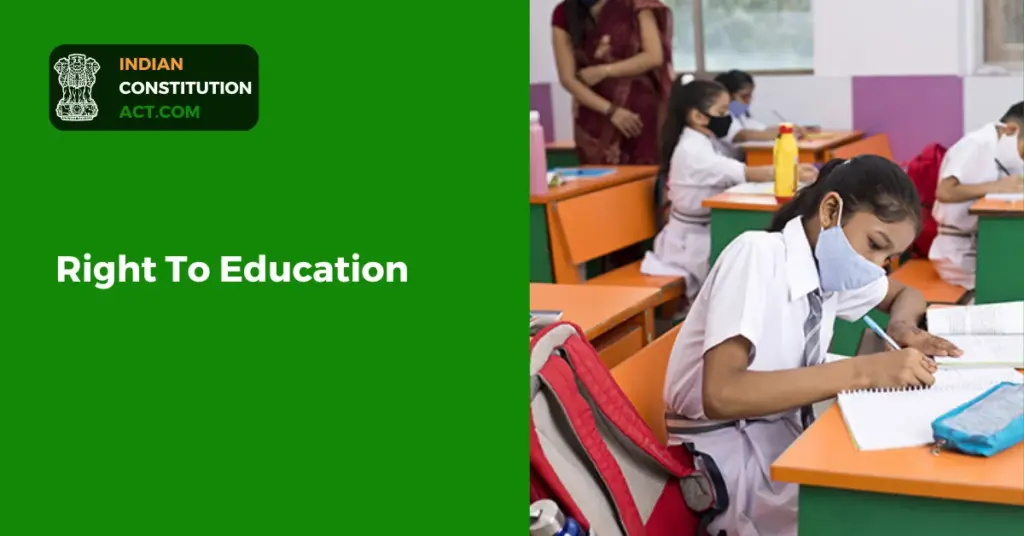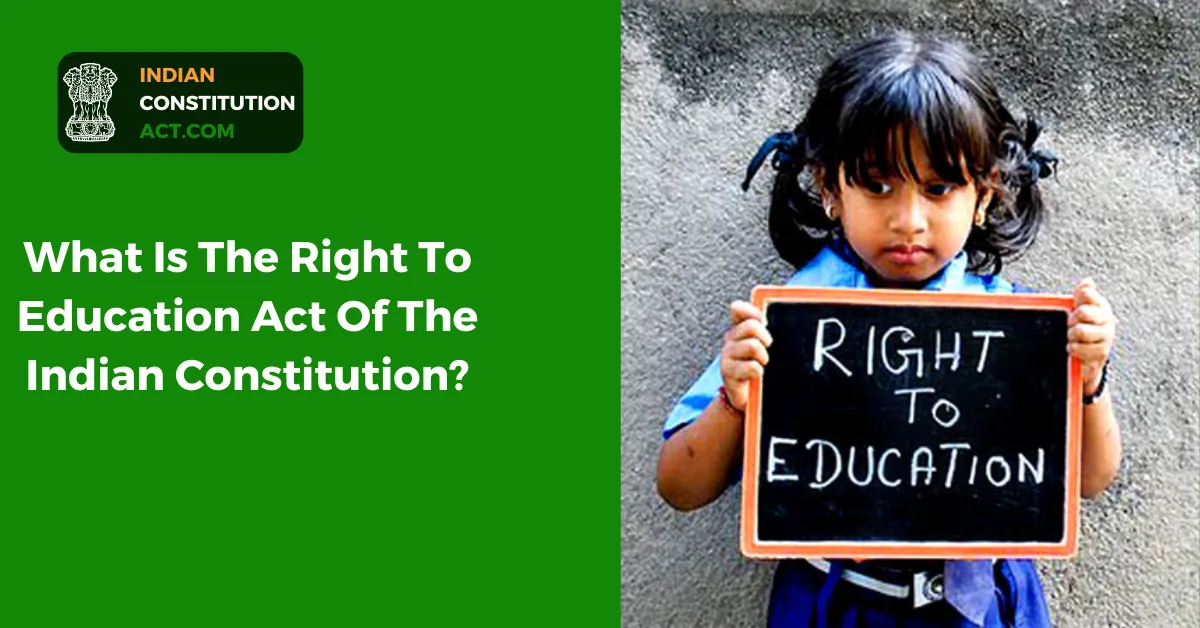Right To Education Act of The Indian Constitution: The Right to Education Act was added by the Indian Constitution in 2002 in Article 21-A. This act claims to give free and compulsory education to all children in the age group of 6 to 14 as a Fundamental Right in such a manner as the state may, by law, determine. To know everything about this act, read this blog till the last.
Right To Education Act Of The Indian Constitution

The Right to Education Act of the Indian Constitution claims to provide free and compulsory education for all children who are between the age group of six to fourteen years as a Fundamental Right.
This act was enacted on 4th August 2009. India became one of 135 countries to make education a fundamental right of every child when the act officially came into force on 1st April 2010.
The Right to Children to Free and Compulsory Education Act 2009 represented the constitutional legislation envisaged under Article 21 A. This means that every child has a right to full-time elementary education of satisfactory and equitable quality in a formal school, it satisfies certain essential norms and standards.
The right to education has been officially recognized as a human right in several international conventions which also includes the International Covenant on Economic, Social, and Cultural Rights which recognizes a right to free, primary education for all types of obligations that will develop in the secondary education accessible to all with the progressive introduction of free secondary education and also to develop access to higher education by the progressive introduction of free higher education.
As per this act, the Right to Education with disabilities until 18 years of age is laid down under separate legislation under the Persons with Disabilities Act.
Right To Education Act Of The Indian Constitution International Legal Basis
The Right to Education Act of the Indian Constitution is reflected in Article 26 of the Universal Declaration of Human Rights, which clearly states:
“Everyone has the right to education. Education shall be free, at least in the elementary and fundamental stages. Elementary education shall be compulsory. Technical and professional education shall be made generally available and higher education shall be equally accessible to all based on merit.
Education shall be directed to the full development of the human personality and the strengthening of respect for human rights and fundamental freedoms. It shall promote understanding, tolerance, and friendship among all nations, racial or religious groups, and shall further the activities of the United Nations for the maintenance of peace. Parents have a prior right to choose the kind of education that shall be given to their children.”
Also read: What Is Article 21 Right To Life?
What Does The Right To Education Act Of The Indian Constitution Provide?

- This act clarified compulsory education which means the obligation of the appropriate government to provide free elementary education and ensure compulsory admission, attendance, and completion of elementary education to every child in the 6 to 14 age group. Free means that no child shall be liable to pay any kind of fee or charges or expenses that may prevent him or her from pursuing and completing elementary education.
- This act provides the right of children to free and compulsory education till they complete their elementary education in a neighborhood school.
- It specifies the duties and responsibilities of appropriate Governments, local authorities, and parents in providing free and compulsory education and sharing of financial and other responsibilities between the Central and State Governments.
- It also makes provisions for a non-admitted child to be admitted to an age-appropriate class.
- It provides for the appointment of appropriately trained teachers, i.e. teachers with the requisite entry and academic qualifications.
